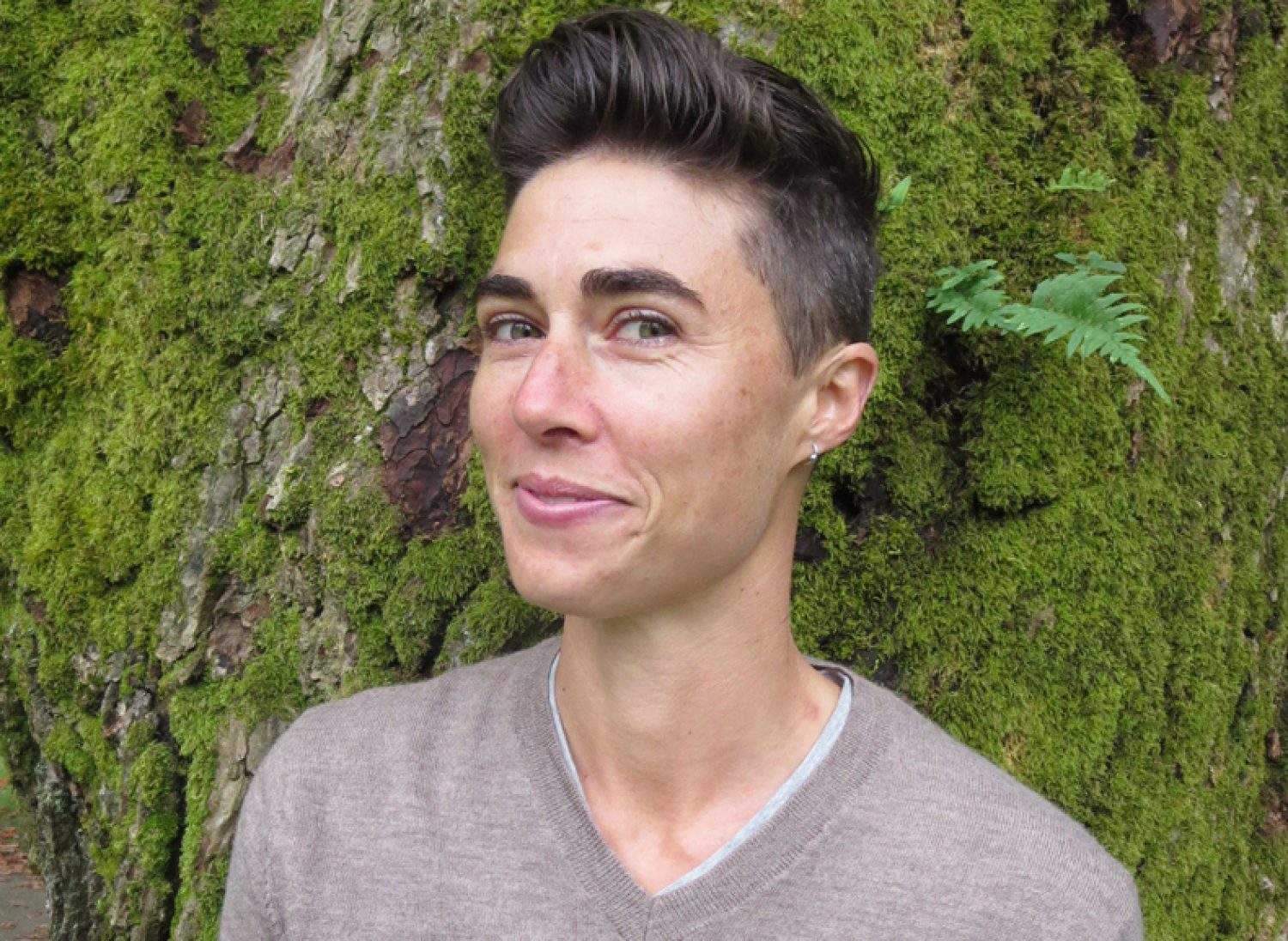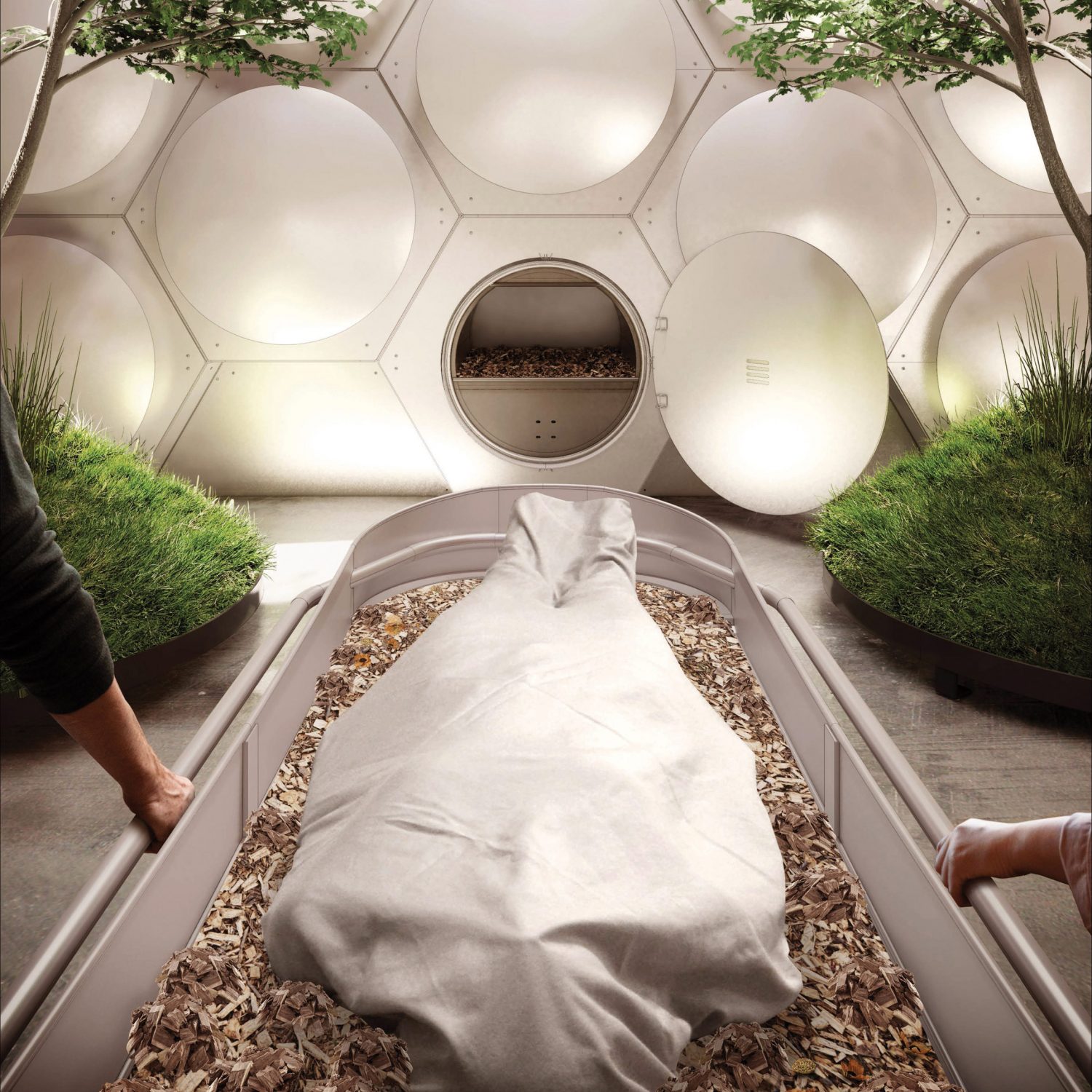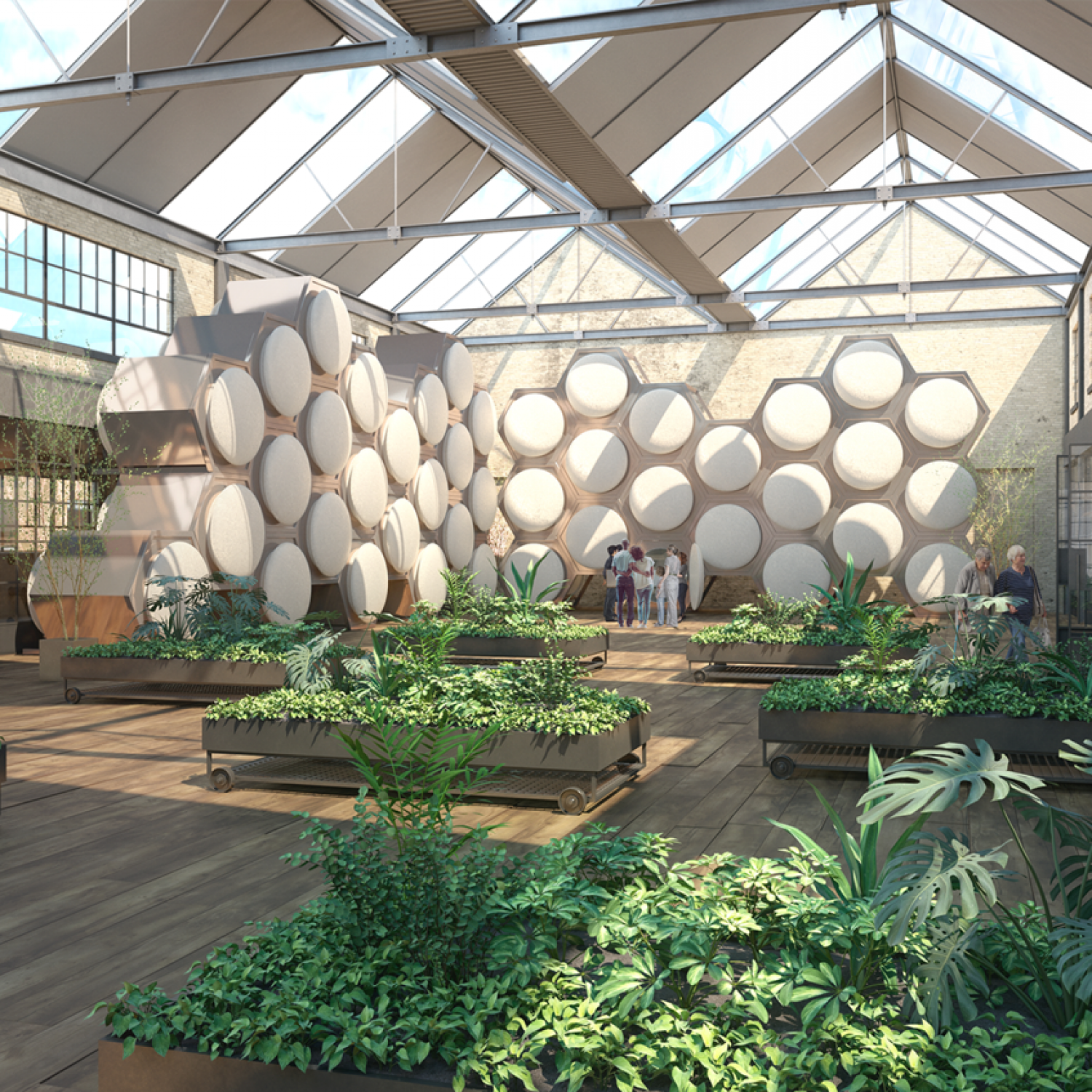Katrina Spade is on a mission to transform how we think about death care. She’s the founder of Recompose, a Seattle-based company that uses an environmentally-friendly process to convert human remains into soil.
This interview took place before Recompose opened its first facility in 2020, Katrina tells us about building death-friendly cities, connecting with nature and how recomposition actually works.
How did you become interested in death care?
Both my parents were in medicine and so it wasn't uncommon for them to talk openly about the death of a patient during dinner. We also always had a couple of cows or chickens which we would eventually eat. So the cycle of life was very present when I was growing up.
After my partner and I had our second kid, I was very struck by the fact that the children, me and my partner were all growing at the same rate. I thought, oh my god, that clearly means that someday I'll die! That was just as I began grad school for architecture and I started to be curious about the death care systems we have in this culture.
How did that lead to Recompose?
I started to look at what kind of place I would design specifically for our cities that would connect the grieving person and the dying person to nature. I had this suspicion that even if we hardly ever go to nature, having it connect to our mortality is really important.
A friend of mine, who knew I was thinking about this, called and said, ''did you know that farmers compost whole cows?' I thought, if you can compost a cow then clearly you can compost a human. A couple weeks later, I told my parents, 'so for my thesis, I'm going to compost humans,' and they were like, ‘great!’
Your thesis was A Place for the Urban Dead and I thought it was really interesting to think about death care as an urban planning issue. Do you think that modern cities are built with good death care in mind?
I came at it as a pretty personal question: what would I want for my body when I die? Cemeteries are nice green spaces, but they've never felt special to me. As for cremation, if you love fire then you should be cremated because that's beautiful. But what if you don't? There are also questions about emissions, but really ‘is it meaningful’ is the first question.
I love the concept of natural burial so much and yet, I also love my cities. It would be weird if, when I die, my loved ones take my body and drive me into the countryside.
So I don't think cities have death care practices that resonate for a lot of people. You can also look at the land use issue. In a city, typically, there are better uses for land than burying people with their own plot.
What do you think a more death-friendly city might look like?
People sometimes say, 'wait, you're suggesting that we compost people in a building in the city?' It's like a lot of folks don't remember that there's a crematory down the street and cemeteries all over. We have the dead with us all the time but we don't always remember that. I think a death-friendly city would probably elevate that fact.
What steps did you take to make the idea you had into a reality?
It's been a long process. Early on, I found Dr Lynne Carpenter-Boggs, who’s an expert on livestock composting and has become a critical advisor. I cold-called her and said, 'I've read your papers, and I’ve been working on a project to try to see if we could compost humans.'
She told me, 'I’ve always thought that would be a great idea and so have many of my farmer friends.' She was already convinced it was a beautiful concept, so that was a good sign.
There’s also the legal question. A huge piece of this was understanding that all 50 states [in the US] have different laws around funerals.
How does recomposition actually work?
The basic concept is making sure you have the right ratio of carbon and nitrogen which attracts and feeds the right community of microbes. These microbes break down all of the material. We also use a mixture of wood chips, alfalfa and straw to cover and cocoon the body in the vessel.
Again, what we're trying to do is make the perfect environment for these microbes to do their work. It's quite accurate to think of it as the magic that's at work on the forest floor.
If you walk into the forest and you see pine needles, leaves and a chipmunk that has died, all of this is breaking down to create that beautiful topsoil underneath. That kind of decomposition is a slower less contained version of what recomposition is.
Do you think that the work that you're doing is helping people have a more open conversation about death and dying?
I decided a few years ago that even if I fail at this effort, I've done some good by getting people to talk about mortality. They're like, 'oh my god, did you hear what these weirdos in Seattle are doing?' That's great, because part of my mission is just to get people talking about it.
Why do you think it's important that we talk about death and dying more?
There's a lot of beauty in recognising that we're only here temporarily and also that we truly are part of nature. On a day-to-day level, since starting this work, I've had more clarity around how precious life is. I've spoken to lots of funeral directors and death care practitioners who feel the same way. If you're working in death care every day, you really appreciate life.
What would you like to have happen with recomposition in the future?
In the future, I’ve envisioned a place — not unlike Poppy's — where you encounter people who feel authentic and can meet you on your level when you're grieving. It would be a place where it's recognised that death is such a tremendous event. It can be both a sad and potentially angry event, but death can also sometimes be a beautiful moment in the trajectory of someone's life.
To hear more from Katrina Spade and Recompose sign up to their newsletter.
Looking for more brilliant behind-the-scenes interviews? Find out what it's really like working in a mortuary or therapist Julia Samuel's advice about grieving.
To stay in touch with all the latest news and updates from Poppy's by email, sign up here or contact us if you need help planning a funeral.


